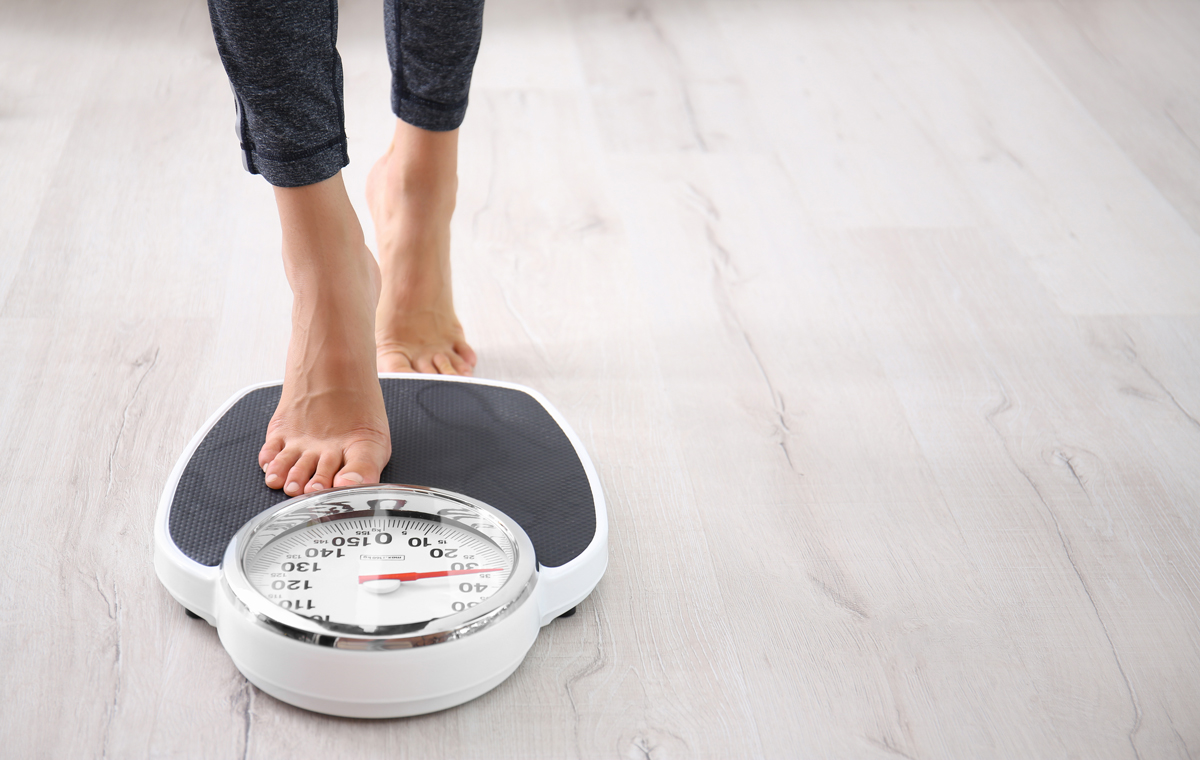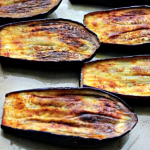Help. After being stuck in the house with a husband and two toddlers for nine months, I attempted to get dressed in a “real” outfit today (i.e., something that doesn’t fit the description of athletic, athleisure, or loungewear) only to find out that my favorite pants no longer fit. I want to scream!
As a dietitian who eats mindfully, I have to say that this recent body change came as a bit of a shock. I have to be honest; it was a larger change than what I’m used to. Let’s just say the zipper didn’t have a chance. I pride myself on respecting my body, and I recognize that it is perfectly natural for weight to fluctuate over time. I have a healthy self-image with no delusions that I should be fitting into a pair of pants from high school. These particular pants were purchased last summer while vacationing with my husband, and thus have a particular sentimental value. It also pains me to mention that I paid way more than I should have. That being said, I am not ready to throw them into the donation pile. Especially not after spending nine months at home and wearing them but a few times.
For those of you who are unfamiliar with the practice of mindful eating, let me outline some of the ways it fits into my lifestyle. First and foremost, I pay attention to internal hunger and fullness cues, and I don’t typically eat out of boredom. I am flexible and deliberate in my food choices, consuming foods from most categories – fruits, vegetables, variety of proteins (including fish), carbohydrates both complex and refined, dairy, and of course, sweets. As the main cook in our household, I make an effort to incorporate as much variety as possible in any given week. There are also foods I can’t stand – like sausage. Nothing wrong with other people around me enjoying it, but I typically avoid preparing it. Sometimes we eat dessert after dinner. Sometimes we do not. I choose to prepare nourishing foods for my family because I believe they taste good, and I want my children to cultivate their taste buds in the same manner (as much as toddlers are capable). I recognize that I am privileged to be able to do so as well. I also choose to prepare “unhealthy” foods because, well, life is just boring without them. We enjoy our meals together – sometimes the company more than the food (my cooking could use some work). In sum, I strive to promote balance surrounding food when it comes to both my family and my clients.
But balance can be tricky and confusing. Probably because it is often hard to notice you’re losing balance until after the fact. Case in point – my favorite pants no longer zip. I honestly had not seen that one coming, because I don’t use a scale. The tricky part now is actually figuring out what to “do” next. It has become widely accepted that diets don’t work. The fundamental reason being they are a vicious cycle beginning with a distaste for one’s body size, leading to an intake restriction, eventually causing a crash, which inevitably leads to overeating, and finally regaining any weight that’s been lost. But dieting aside, how will it be possible to ever fit into my pants again?
I suspect I am not the only person experiencing this type of quarantine crisis right now. The fact of the matter is I don’t think there is anything wrong with the size of my body in its current state, but I am also keenly aware that I don’t feel well or “normal”. I don’t have the same energy level that I used to. I currently rely on two cups of caffeinated beverages a day where I used to run just fine on one. Most self-care habits have gone out the window including the fact that I no longer go to the gym or engage in any fitness routine at all. Most importantly, I’m not so hot on the idea of purchasing an entirely new wardrobe of clothing to compensate for this change.
In an effort to preserve the lovely wardrobe I have spent years (and many dollars) building, I propose a mindful strategy to recalibrate my HEALTH HABITS, rather than focus on WEIGHT, that will be neither quick, nor the center of my life. This will hopefully bring me back to a place where I feel comfortable, confident, and joyous in my pursuit of caring for myself physically and mentally. Whereas classic weight loss strategies might require me to categorize foods in the good/bad columns and cloud my notions of enjoying food, my mindful re-booting eliminates the food police entirely. The concept here is to start with curiosity. How has the quarantine changed my lifestyle? How have my eating habits shifted? Have I engaged in new drinking habits? Is there a particular food or drink that I tend to be consuming more than usual? How has my stress level been? What type of self-care (if any) have I taken advantage of over the past nine months?
In my case, it seems as if my habits have slowly shifted in all categories. Let’s start with my mid-afternoon regular Coca Cola that I crave when there’s still five hours before my kids’ bedtime, and I’m ready to fall asleep standing up. Or perhaps it’s the daily Starbucks run? We may be eating home-cooked meals more often, but there seem to be more bottles of wine consumed alongside those meals. After we put the kids to bed my husband and I often meet in the kitchen to chat, and inevitably open a container of ice cream or cookies and consume it whether we’re in the mood or not. Separately, my exercise regimen has gone from consistent to practically nonexistent. I used to love taking classes at gyms, but I’m really not motivated to engage in internet workouts from home. It’s just not my thing and I don’t find joy in it. During the summer months we would often go on family walks after dinner, but since the sun has started setting earlier, we have omitted that from our routine, too.
What’s interesting here is that I am not in support of eliminating all these new quarantine habits. Some of them have enhanced my life – I happen to look forward to my evening dessert ritual with my husband, but it’s necessary to explore whether I am actually craving something sweet each night or really just his undivided attention? Probably the latter. Could I honor this need for connection without food, perhaps? What kind of “hunger” am I really experiencing? Furthermore, this strategy is neither about ignoring hunger cues nor restricting intake. Appetite suppression is absolutely disordered eating, and I do not wish to enter that territory. Instead, I am confident that with a few small lifestyle tweaks such as the occasional replacing cookies with hot tea, and/or skipping the wine a few nights in the name of actually being honest with my cravings, then over time the pants will zip as my weight normalizes. I should also probably incorporate some type of exercise into my life that I enjoy – perhaps walking with girlfriends might be a good start since I clearly crave social interaction with my movement routine.
Mindful eating is a practice and an art. That means that it can be continually evolving. Understanding that stress and other factors caused my needs to change during this quarantine reminds me that being flexible is part of being mindful. There is nothing wrong with wanting to normalize your weight so long as it is done in an open and honest manner – and in pursuit of honest health habits – NOT a number on a scale. Gaining weight is often blamed as the culprit for our stress and anxiety, but it is rarely the root cause. It takes courage to look beneath the surface and confront the true stressors, which may have led to the weight change to begin with. The key to feeling better is revisiting those original habits and rhythms of eating, drinking, self-care, etc. that actually shaped me in the first place. With that in mind, as long as my desire to change my body doesn’t supersede my desire to be present and enjoy holiday meals with my friends and family, then I am likely moving in the right direction. And as for the mid-afternoon Coca Cola – I’m keeping that one.






